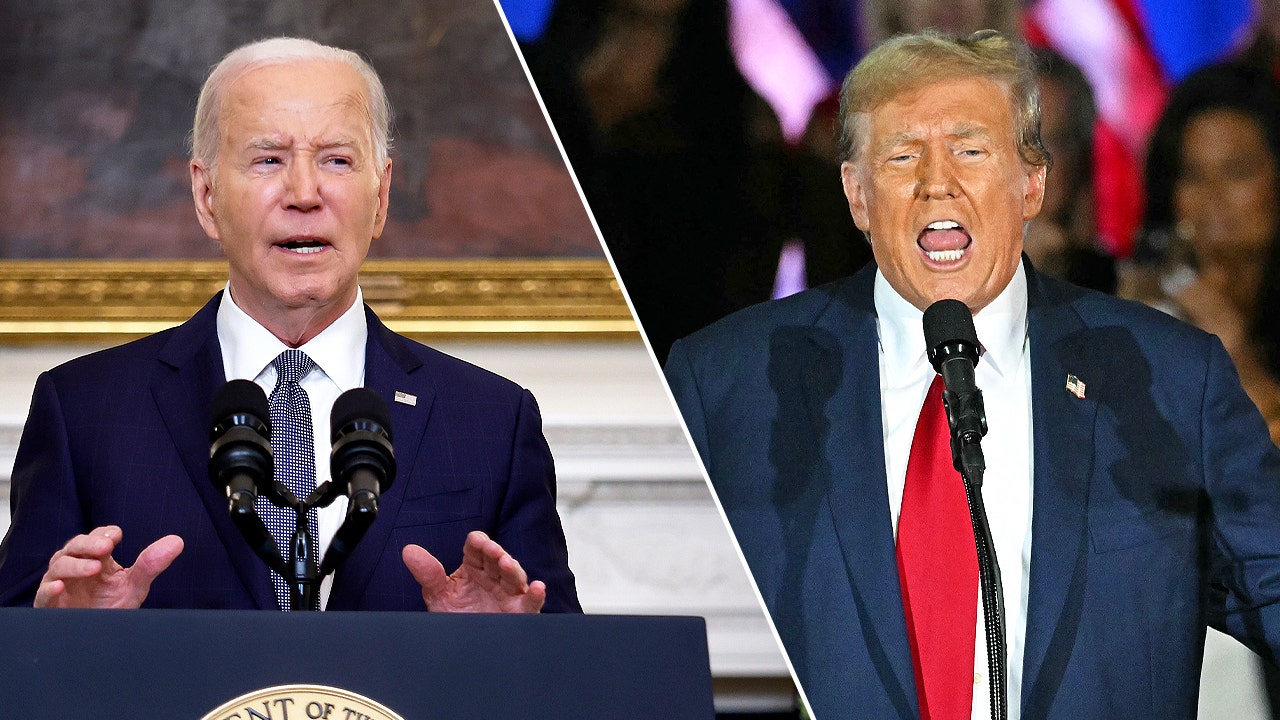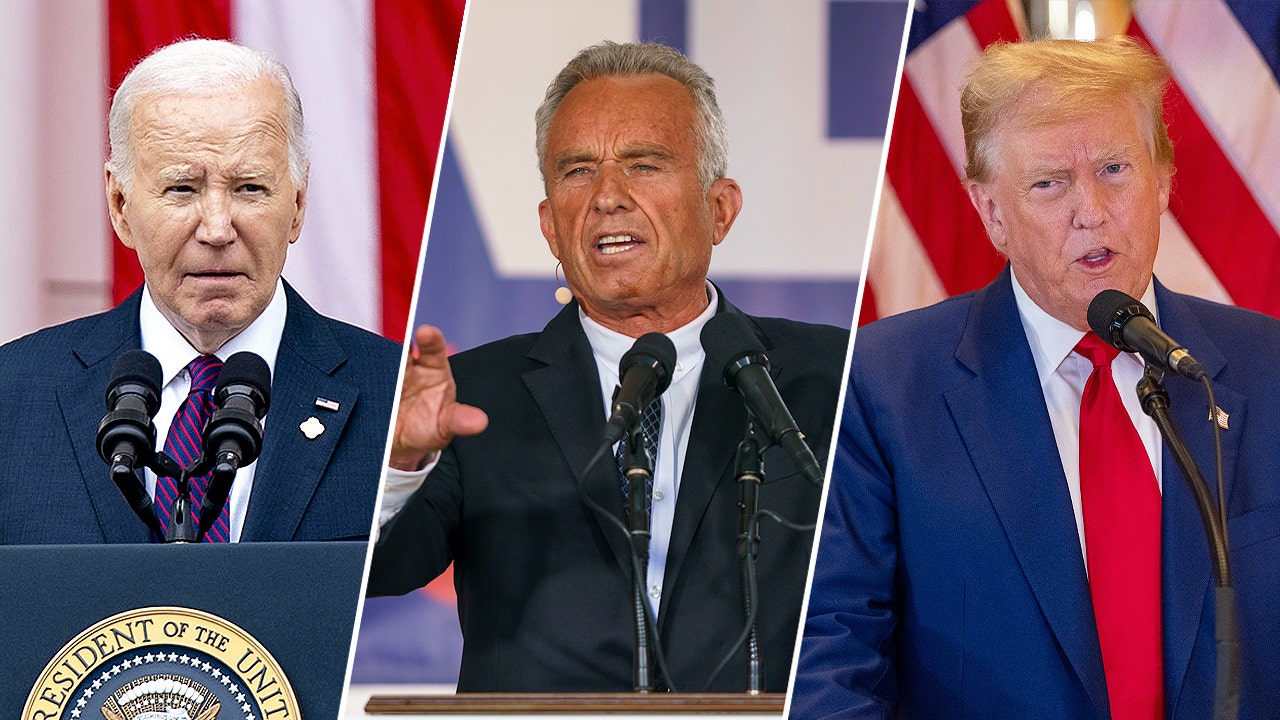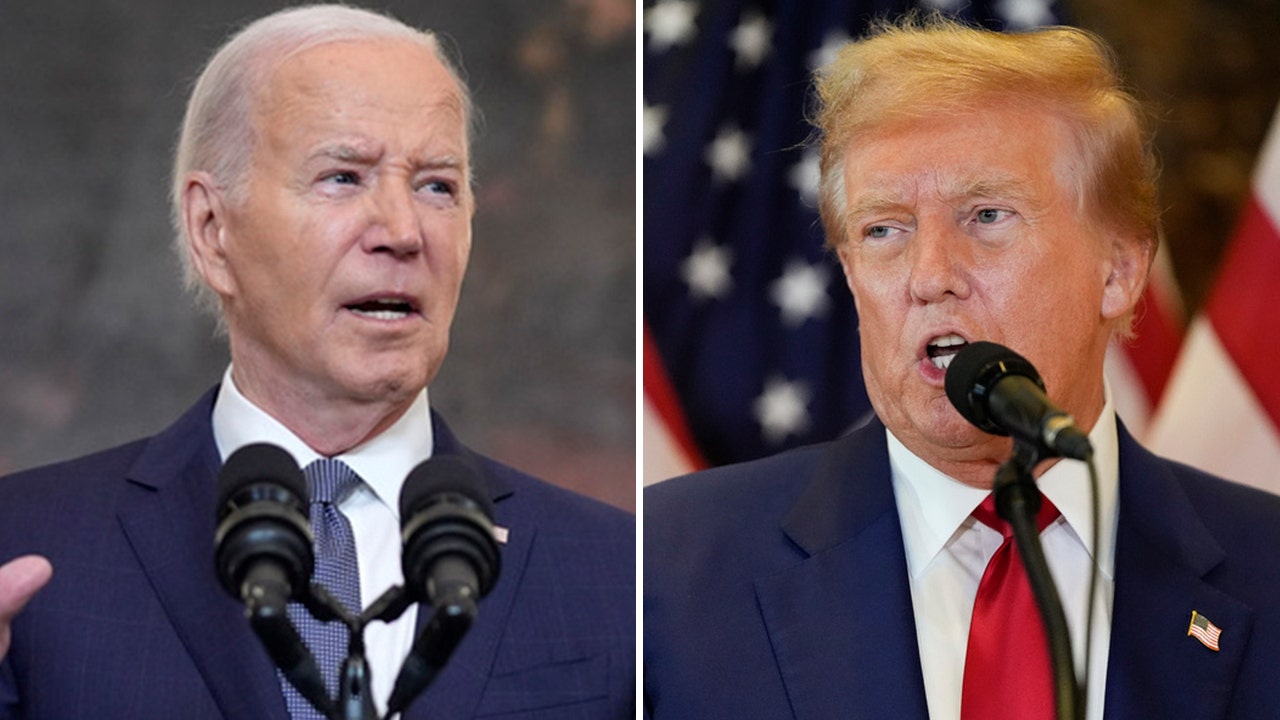New Jersey
New Jersey folks thought they saw a UFO. Turned out, Musk was to blame

If you thought you saw a UFO in New Jersey, it’s not quite what it seemed – more like an “optical illusion” than an intergalactic event.
What New Jersey residents initially believed to be a UFO turned out to be Elon Musk’s Starlink satellites gracefully gliding above the Garden State.
This happened as SpaceX sent its newest set of devices into space.
What
-
On Saturday night, sky watchers were puzzled as they saw numerous lights moving in a straight line above them.
Some speculated that these lights could be extraterrestrial UFOs. -
People on social media were excited, thinking that aliens might be visiting New Jersey, especially with recent UFO hearings.
-
But it turned out to be less exciting as SpaceX explained that the lights were just their Starlink satellites passing by after launching from Cape Canaveral on Friday.
This isn’t the first instance of a celestial oddity in the night sky turning out to be a Starlink satellite.
Earlier this year, researchers from the University of Vermont and the Center for UFO Studies discovered that SpaceX, led by Elon Musk, was responsible for an increase in UFO sightings since the start of the pandemic.
The company had launched numerous satellites in May 2019 to provide internet coverage to 50 countries, and reports of UFOs surged around the same time.
SpaceX currently has over 3,000 satellites orbiting the Earth, many of which are easily visible, forming the largest low-orbit satellite network in the sky. As SpaceX plans to launch more than 10,000 satellites by 2027, these satellites are likely to continue causing confusion in the future.
According to the website, Starlink is the world’s biggest satellite network in low Earth orbit, providing fast internet for streaming, gaming, video calls, and more. Using advanced satellites and technology, Starlink offers high-speed, low-delay internet to users worldwide.

New Jersey
States struggle with unreliable federal funding for making sure elections are secure • New Jersey Monitor

WASHINGTON — The federal government has sought to bolster election security for years through a popular grant program, but the wildly fluctuating funding levels have made it difficult for state officials to plan their budgets and their projects.
Rising misinformation and disinformation about elections, often fueled by conspiracy theories, as well as threats against election workers, make the grants especially important, according to elections officials.
But U.S. House Republicans are seeking to eliminate funding for election security grants — known as Help America Vote Act, or HAVA grants — in this year’s appropriations process, a move they unsuccessfully attempted last year as well.
“We continue to unnecessarily risk the very integrity of our elections and American democracy,” Georgia Democratic Rep. Sanford Bishop said Thursday during committee debate on the funding bill.
Bishop, a senior member of the House Appropriations Committee, said he was “concerned about the outdated and the insecure voting systems around the country that pose a very, very serious threat to our national security and to our democratic system.”
“It is irresponsible to ignore the wake-up call,” Bishop added. “Our nation’s election systems are currently and constantly under attack by foreign actors that are threatening our democratic values.”
The bill was approved by the GOP-led House Appropriations Committee with no money in it for the grants.
Gideon Cohn-Postar, legislative director at Issue One & Issue One Action, said during an interview with States Newsroom that while the grants have traditionally been bipartisan, several factors have affected backing for the program in recent years.
“It remains something that many Republicans in both the House and the Senate support,” Cohn-Postar said. “But it’s also been caught up, I think, in some of the false information about elections that began to spread in 2020.”
Former President Donald Trump, now the presumptive Republican presidential nominee, has continued to falsely claim that the 2020 election was stolen.
Issue One writes on its website that the organization strives to “unite Republicans, Democrats, and independents in the movement to fix our broken political system and build an inclusive democracy that works for everyone”.
Grant funding decreases
Congress approved $55 million in election security grants during the last appropriations process, which wrapped up this spring. That action came after the Republican-controlled House, which proposed zero dollars, conferenced with the Democratic-controlled Senate, which had proposed $75 million in funding.
That final funding level was a decrease from the $75 million that Congress approved in both fiscal 2023 and fiscal 2022.
Congress didn’t approve any election grant funding in the annual appropriations bill during fiscal year 2021. However, that followed lawmakers’ allocation of $425 million in the prior year’s bill as well as an additional $400 million in one of the COVID-19 emergency spending bills.
Cohn-Postar said that several states have sought to make their HAVA grants last more than one year by spending less than they receive, or saving the money up for bigger projects.
Louisiana, for example, hasn’t spent any of its election security grant funding since 2018, in preparation for overhauling its election system. New Hampshire passed a state law that collects the grant funding in an endowment and then only spends a portion of that each year.
But that “careful” budgeting and uncertainty about how much grant funding Congress might provide in the next year has led federal lawmakers to look at states’ use of the grants skeptically, Cohn-Postar said.
“The key thing we’ve come across … is about half of the states have only spent about half of their HAVA grants,” Cohn-Postar said. “And that gets brought up in every conversation that Congress has about these grants. They say, ‘Hey, why should we appropriate more if you haven’t spent?’”
Congress, he said, sometimes uses states’ “careful, thoughtful budgeting as an excuse to not give them money.”
Republicans in Congress are also looking to reduce federal spending overall and have made cuts throughout many of the dozen annual spending bills, including the Financial Services bill, which includes the HAVA grants.
‘Incredibly important’ in Maine
Maine Secretary of State Shenna Bellows said during an interview the grants “have been incredibly important, especially in the absence of sustainable elections funding from the federal government.”
“We have seen the rapid evolution of cybersecurity threats and threats against election infrastructure over the last several years,” Bellows said. “As the threats evolve, so must our preparedness. The election security grants are fundamental to our ability to make investments in improvements in our central voter registration system and cybersecurity protections for that system.”
Congress’ inability or unwillingness to create a predictable, stable funding program for states to administer federal elections is “unfortunate,” she said.
“We are very proud that Maine has always enjoyed safe, free and secure elections,” Bellows said. “But make no mistake, the lack of sustainable ongoing federal funding is a potential vulnerability in the future.”
Washington state Elections Director Stuart Holmes said in an interview he plans his annual budget around not getting HAVA election security grants and is pleasantly surprised when Congress does provide the funding.
“Through my entire career, there’s only been two rounds of HAVA that were significant investments into elections,” Holmes said. “So it’s a great surprise to get an extra million dollars at the beginning of the year. But it does make it pretty much impossible to prepare and plan for anything if you have to spend it.”
The grants don’t expire at the end of the fiscal year and the federal government doesn’t claw back unspent funding, allowing the states to take different approaches to how they use the money.
Holmes said during his interview with States Newsroom that the funding approved in fiscal 2020 allowed the state to “create an entire team of cybersecurity professionals to be dedicated to protecting our infrastructure.”
“In the state of Washington, we have a centralized voter registration and election management system, and never before had we had dedicated election professionals that are watching the logs, preparing our system, testing our system and collaborating with other professionals to do testing,” Holmes said. “So we’re in a better position than we’ve ever been.”
Even so, he said, “local election officials would certainly look forward to a stable funding source from the federal government as it relates to federal elections.”
New Hampshire election fund
New Hampshire Secretary of State David M. Scanlan said when Congress passed the HAVA program in 2002, it told states the funding was primarily to set up a statewide voter registration database, ensure every polling place had accessible voting equipment, provide poll workers with training and set up voter education programs.
The New Hampshire Legislature at the time told the secretary of state to use the initial allocation from Congress to meet the requirements, but then to establish an election fund with the remaining money.
Originally, the secretary of state could use one-twentieth of the total funding in the account for annual costs of maintaining the federal mandates, but that is currently one-twelfth of the total amount in the fund.
“New Hampshire has been doing a good job with the money that we have, but there’s no question that the funds have helped us put in place security measures for our electronic systems,” Scanlan said.
The state, he said, has used its federal election security grants to hire vendors that specialize in keeping the electronic systems safe.
When New Hampshire set up a new voter registration database, the state used the funding to ensure none of the software included anything nefarious.
“We’ve really been making sure that the systems that we’re building are clean and that there’s not something malicious lurking in the shadows,” Scanlan said. “We’ve taken some really good steps that give me real confidence that our systems are in good shape.”
Advocating for ‘consistent, reliable federal funding’
JP Martin, deputy communications director for the Arizona secretary of state, declined States Newsroom’s request for an interview with the secretary of state, offering only to provide written responses to questions on HAVA election security grants.
Martin wrote in an email that “fluctuating levels of federal funding have significantly impacted our strategic planning and budgeting.”
“The uncertainty of future allocations compels us to be cautious with expenditures, focusing on priorities such as enhancing physical security measures for voting equipment,” Martin wrote. “For instance, securing equipment in cages—now requires a liftgate-equipped truck due to their increased weight—demonstrates the challenges of managing technological and budgetary constraints under limited HAVA funding.”
Congress declining to provide election security grants in the future “could significantly strain Arizona’s election infrastructure,” he wrote.
“Currently, the state is under a hiring freeze, and our focus remains on supporting counties, especially with the recent changes such as the date of the primary and legislation extending ballot curing to weekends,” Martin wrote. “We are prioritizing increased cybersecurity training and advocating for consistent, reliable federal funding to ensure the smooth administration of elections, emphasizing the necessity of sustained financial support from Congress.”
New Jersey
New Jersey lottery player wins $1 million in Friday’s Mega Millions

Check your tickets, New Jerseyans! A lottery player won $1 million in Friday’s Mega Millions
A New Jersey lottery player won a $1 million Friday night playing the Mega Millions.
While no one won the jackpot, a ticket sold in the Garden State matched the five white balls to win the million, according to the Mega Millions website.
It was not immediately released where in NJ the winning the ticket was sold.
The jackpot was last won on June 4 when a lottery player in Illinois won $552 million – the ninth largest Mega Millions ever.
Mega Millions hits $61 million
With no jackpot winner, the grand prize will climb to an estimated $61 million with a cash option of $29.3 million for Wednesday night’s drawing.
Mega Millions winning numbers for 6/14/24
The Mega Millions winning numbers for Friday, June 14, 2024 were: 1 – 25 – 26 – 31 – 65 and Megaball 2. The Megaplier was 3x.
Looking for an edge? These Mega Millions numbers are drawn the most
When is next Mega Millions drawing?
Mega Millions drawings are held every Tuesday and Friday at 11 p.m.
More: $1.35 billion Mega Millions winner sues mother of his child for disclosing jackpot win
How do I play Mega Millions?
The cost is $2 per ticket, but you can add the Megaplier for $1, which will increase the amount of your potential prize up to five times the original prize (except for the jackpot).
Each player selects five numbers from 1 to 70 for the white balls and one number from 1 to 25 for the Mega Ball. However, you can also have the lottery machine generate a random Quick Pick for you. You don’t need to be a U.S. citizen or a resident of a particular state where you purchase your ticket.
More: ‘It still doesn’t feel real’ – New York man claims $476M Mega Millions jackpot
How many balls do I need to match for Mega Millions prize?
You can win $2 for the matching just one – the Mega Ball. Short of the jackpot, you can win up to $1 million for matching all five white balls (except in California). You can check all the prize payouts on the Mega Millions site here.
Beware: No, a lottery jackpot winner isn’t giving you money. How to spot a scammer
Where is the Mega Millions available?
You can play the game in 45 states plus the District of Columbia and the U.S. Virgin Islands. The states not offering Mega Millions are: Alabama, Alaska, Hawaii, Nevada and Utah.
Lucky? These are the states with the most Mega Millions jackpot winners
Where can you buy lottery tickets?
Tickets can be purchased in-person at gas stations, convenience stores and grocery stores. Some airport terminals may also sell lottery tickets.
You can also order tickets online through Jackpocket, the official digital lottery courier of the USA TODAY Network, in these U.S. states: Arizona, Arkansas, Colorado, Idaho, Massachusetts, Minnesota, Montana, Nebraska, New Hampshire, New Jersey, New Mexico, New York, Ohio, Oregon, Texas, Washington D.C. and West Virginia. The Jackpocket app allows you to pick your lottery game and numbers, place your order, see your ticket and collect your winnings all using your phone or home computer.
NJ lottery: Where does all the ticket sales money go?
What is deadline for buying Mega Millions tickets?
The deadline for purchasing a Mega Millions ticket varies by state so don’t wait until the last minute. It can be 15 minutes to an hour or more before the actual drawing. For some third-party lottery apps, the deadline can be closer to two hours before the drawing. For example, Jackpocket in New Jersey has a deadline of 9:15 p.m. for the 11 p.m. ET drawing.
Click here to check the deadline for where you live.
What are my odds of winning the lottery?
Playing the Mega Millions can be exciting, but just don’t go spending those millions before you win.
The odds of winning the jackpot are 302,575,350-to-1. The odds to match all five white balls are 12,607,306-to-1.
Unlucky? Here are 13 crazy things more likely to happen than winning the lottery
What does cash option mean?
The major lotteries in the United States offer two jackpot payout options: annuity and cash.
The annuity option is paid out over time. There is an immediate payment and then 29 annual payments after that, increasing by 5% each year. The cash option is significantly lower than the advertised jackpot, but it is paid in a lump sum. You don’t have to wait decades for all the money.
Can a jackpot winner remain anonymous?
In some states, like New Jersey, you can win a lottery anonymously. That wasn’t always the case, but now winners are able to stay anonymous under a law that was signed by Gov. Phil Murphy. In other states, a winner’s name and hometown are a matter of public record. Check with your state lottery for more information.
What are the Top 10 Mega Millions jackpots?
Here are the Top 10 Mega Millions jackpots ever:
- $1.602 billion, Aug. 8, 2023: Won in Florida
- $1.537 billion, Oct. 23, 2018: Won in South Carolina
- $1.348 billion, Jan. 13, 2023: Won in Maine
- $1.337 billion, July 29, 2022: Won in Illinois
- $1.128 billion, March 26, 2024: Won in New Jersey
- $1.05 billion, Jan. 22, 2021: Won in Michigan
- $656 million, March 30, 2012: Three winners in Illinois, Kansas, Maryland
- $648 million, Dec. 17, 2013: Two winners in California, Georgia
- $543 million, July 24, 2018: Won in California
- $536 million, July 8, 20116: Won in Indiana
What are the Top 10 Mega Millions jackpots?
Here are the Top 10 Mega Millions jackpots ever:
- $1.602 billion, Aug. 8, 2023: Won in Florida
- $1.537 billion, Oct. 23, 2018: Won in South Carolina
- $1.348 billion, Jan. 13, 2023: Won in Maine
- $1.337 billion, July 29, 2022: Won in Illinois
- $1.128 billion, March 26, 2024: Won in New Jersey
- $1.05 billion, Jan. 22, 2021: Won in Michigan
- $656 million, March 30, 2012: Three winners in Illinois, Kansas, Maryland
- $648 million, Dec. 17, 2013: Two winners in California, Georgia
- $552 million, June 4, 2024: Won in Illinois
- $543 million, July 24, 2018: Won in California
Jackpocket is the official digital lottery courier of the USA TODAY Network. Gannett may earn revenue for audience referrals to Jackpocket services. Must be 18+, 21+ in AZ and 19+ in NE. Not affiliated with any State Lottery. Gambling Problem? Call 1-877-8-HOPE-NY or text HOPENY (467369) (NY); 1-800-327-5050 (MA); 1-877-MYLIMIT (OR); 1-800-GAMBLER (all others). Visit jackpocket.com/tos for full terms and conditions.
New Jersey
D.C. Dispatch: What N.J.’s members of Congress did in Washington this week – New Jersey Globe

New Jersey politicians have gotten through their primaries – and for most of them, that likely means they’re safe for re-election in the fall. But the work in Washington continues, with the House and Senate debating a major defense bill, legislation protecting IVF, contempt charges against the attorney general, and more.
Here’s some of what New Jersey’s 13 members of Congress did this week (and some of what they did last week, too, since D.C. Dispatch was off).
Making amends
The biggest-ticket item on the House agenda this week was the National Defense Authorization Act (NDAA) – and just like last year, it’s becoming a bit of a boondoggle.
An initial version of the NDAA, an annual must-pass bill laying out the policies and budget of the Department of Defense, passed the House Armed Services Committee in May on a near-unanimous vote. But in a series of votes over the last three days, House Republicans added controversial amendments related to abortion, transgender health care, diversity equity and inclusion offices, and more that turned the bill into a much more partisan exercise.
The NDAA ultimately passed the House this morning on a 217-199 vote, with no New Jersey Democrats voting in favor; just six Democrats nationwide supported it. Rep. Mikie Sherrill (D-Montclair), a Navy veteran who sits on the Armed Services Committee that wrote the original bill, accused Republicans of “hijacking” it to advance their agenda.
“I know as a veteran that we must do better for our servicemembers and military families, but today’s bill has once again been hijacked by the far right – not to improve our military or national security, but to drive an agenda that makes America look small, attacks women, and ultimately will be detrimental to the greatest fighting force in the world,” Sherrill said on the House floor.
The exact same process happened to last year’s NDAA, which eventually went through rounds of negotiations in the House and Senate that reverted it to a largely bipartisan piece of legislation. It remains to be seen whether this year’s NDAA will follow the same trajectory.
In-vitro veto
Over in the Senate, the biggest debate this week was over in-vitro fertilization: specifically, an unsuccessful push by Democrats to advance a bill that would guarantee nationwide access to fertility treatment, which has been in the news since the Alabama Supreme Court issued a ruling in February threatening IVF in that state.
Almost every present Democratic senator voted to advance the bill, with many of them speaking on the Senate floor about their own experiences with IVF. But the motion failed 48-47 (it needed 60 votes to move forward) thanks to opposition from all but two Senate Republicans, who largely said they supported IVF but claimed the bill was a “show vote” – a blockade that drew condemnation from New Jersey Senator Cory Booker.
“I am profoundly disappointed that Senate Republicans have voted today to deny countless families the opportunity and the right to make their own deeply personal decisions about starting a family,” Booker said. “I will never stop fighting for the fundamental freedoms of all Americans, and I will continue to advocate for comprehensive reproductive health care that is affordable and accessible to everyone in this country.”
The vote was the latest in a series of Democratic efforts to put doomed bills on important issues up for a vote, following similar bills on contraception and immigration that came up in weeks prior. None of the bills ever had much of a chance of succeeding, but a key objective was achieved: putting senators from both parties on the record on
This Garland is your land
Last week, every New Jersey Democrat signed onto a letter to Attorney General Merrick Garland asking the Justice Department to cease its support for privately owned Immigration and Customs Enforcement (ICE) detention centers in New Jersey.
In 2021, New Jersey passed a law that prohibited the state from contracting with private immigrant detention facilities like the Elizabeth Detention Center (and like another proposed facility in Newark, Delaney Hall). But last year, the law was declared unconstitutional by U.S. District Court Judge Robert Kirsch, a decision that New Jersey’s House Democrats criticized in their letter.
“In our opinion, the district court decision is misguided and has the very real and very unfortunate effect of undermining the will of New Jerseyans and their elected officials who all worked tirelessly to ensure the closure of the Elizabeth Detention Center and end the use of private immigration detention centers in our State,” the letter states.
The letter, which was led by Reps. Rob Menendez (D-Jersey City), Andy Kim (D-Moorestown), and Bonnie Watson Coleman (D-Ewing), calls on the attorney general to withdraw from the litigation as an interested party, a move which they say would be in line with President Joe Biden’s past positions on private detention facilities.
“We believe that refraining from registering a statement of interest more fully aligns with the previous comments made by then candidate, Mr. Biden, to end the federal government’s use of privately operated immigration detention centers,” the letter states.
Get well soon!
Rep. Watson Coleman announced last Thursday that she has been diagnosed with lumbar spinal stenosis, a back condition requiring surgery that will keep her out of Washington for several weeks.
“While I will need to remain in New Jersey during my recovery, I want my constituents to know that both my district office here in Ewing, and my Washington D.C. office remain open and able to serve your needs,” Watson Coleman said in a statement. “Regrettably, this means I will have to miss some votes. However, bills that I have co-sponsored, co-led, and introduced will keep progressing through the legislative process, and I will continue to introduce, sponsor, and support new legislation while I recover.”
(Indeed, despite being at home, Watson Coleman introduced a new bill on Wednesday, the Homes for Young Adults Act, that aims to reduce homelessness among young Americans.)
The congresswoman said she expects to return to Washington “by the end of the month.”
We CARE too
This week, the House Energy and Commerce Committee unanimously approved legislation authored by Rep. Chris Smith (R-Manchester) to reauthorize and improve the country’s research into autism.
The bill – the Autism Collaboration, Accountability, Research, Education, and Support (CARES) Act of 2024 – increases the scope and funding of a number of federal autism programs, and is now set to head to the House floor for passage.
“This critical legislation will make a huge difference for the 1 in 36 children and 1 in 45 adults with autism in the United States by providing robust funding for durable remedies and early intervention work to combat autism,” Smith said in a statement.
It’s the continuation of a longtime mission for Smith, who has worked over the years to improve federal autism research and programs. The bill that passed this week is in fact the third Autism CARES Act Smith has shepherded through Congress, after previous reauthorization acts that were signed into law in 2014 and 2019.
This Garland is my land
In the latest phase of the Republican-led House’s battle against the Biden administration, the House approved a resolution on Wednesday holding Attorney General Garland in contempt of Congress over his refusal to release audio of special counsel Robert Hur’s interview with President Biden.
Unsurprisingly, the vote was an almost entirely party-line affair, with New Jersey Republicans voting yes and New Jersey Democrats voting no. Rep. Jeff Van Drew (R-Dennis), a member of the House Judiciary Committee who has been at the forefront of the GOP effort to investigate the Biden family, castigated Democrats for their unanimous opposition.
“Every single Democrat just voted to let Attorney General Merrick Garland off the hook for breaking the law and ignoring congressional subpoenas instead of releasing the tapes of President Biden’s interview with Special Counsel Hur,” Van Drew tweeted. “Just how bad are those tapes?”
But the resolution – which follows in the footsteps of contempt votes against attorneys general under both Presidents Obama and Trump – isn’t set to go anywhere, since the Justice Department announced today that it’s not following through on contempt charges against Garland, which essentially puts an end to the proceedings.
Other Garden State plots
•Rep. Josh Gottheimer (D-Wyckoff) held an event in Hackensack on Tuesday with Rep. Lauren Underwood (D-Illinois) to promote the Black Maternal Health Momnibus Act, a legislation package aimed at decreasing Black maternal mortality and improving health outcomes for Black mothers.
“We are blessed to live in the greatest country in the world, but our health outcomes should reflect that fact,” Gottheimer said. “We cannot stand by as thousands of women pass away from preventable conditions and thousands of babies grow up, robbed of their moms. That’s why I’m taking steps with Congresswoman Underwood to put a stop to our country’s maternal health crisis.”
•At the Jon Bon Jovi Service Area along the Garden State Parkway on Monday, Rep. Frank Pallone (D-Long Branch) and Ed Potosnak, the head of the League of Conservation Voters of New Jersey, blasted big oil companies and touted the congressman’s investigation into inflated gas prices.
“Big Oil’s insatiable profit-seeking greed could force families to skip their summer road trips to the shore because they cannot afford to fill up,” Pallone said. “In my role on the House Energy and Commerce Committee, I am fighting to hold these companies accountable for potential market manipulation and price fixing, which not only rips off hardworking Jersey drivers, but could also threaten our entire tourism economy.”
•The U.S. Supreme Court yesterday dismissed a challenge to the availability of the abortion drug mifepristone, which drew widespread praise from New Jersey Democrats – and from one Republican, Rep. Tom Kean Jr. (R-Westfield).
“I am pleased with the Supreme Court’s decision to reject a lawsuit seeking to inhibit the distribution of abortion medication,” said Senator Bob Menendez, echoing many of his fellow Democrats. “However, it never should have come to this… Ever since Roe v. Wade was overturned, we have seen numerous attempts to undermine women’s reproductive rights across the nation and this failed lawsuit was no different.”
“Today’s unanimous SCOTUS ruling appropriately leaves decisions of reproductive health to elected state legislatures,” Kean said.
•The Supreme Court’s decision today overturning a ban on bump stocks, however, was not so popular with New Jersey politicians. (Bump stocks are a tool that allow semiautomatic guns to fire at machine gun-like speeds; they were banned by the Justice Department in 2018 after a gunman used them to kill 60 people at a music festival in Las Vegas.)
“The Supreme Court’s radical decision today to strike down the federal ban on bump stocks will make Americans less safe from gun violence and mass shootings, period,” Senator Booker said of the decision. “It defies logic to say that a bump stock yields anything less than a machine gun. As Justice Sotomayor said in her dissent, ‘When I see a bird that walks like a duck, swims like a duck, and quacks like a duck, I call that bird a duck.’”
-

 Movie Reviews1 week ago
Movie Reviews1 week agoStream It Or Skip It: ‘Under Paris’ on Netflix, a shark-in-the-Seine thriller that delivers the ludicrousness you crave
-

 News1 week ago
News1 week agoWoman handcuffed in police car hit by freight train reaches $8.5M settlement
-

 News1 week ago
News1 week agoIsrael used a U.S.-made bomb in a deadly U.N. school strike in Gaza
-
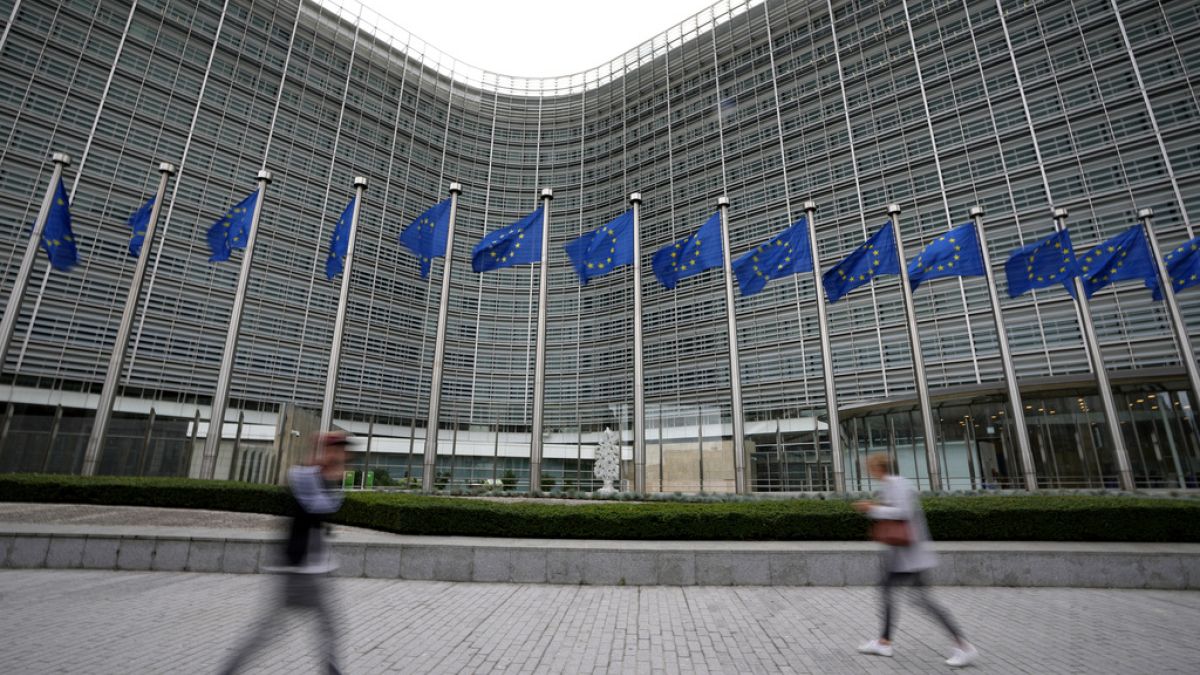
 World1 week ago
World1 week agoEconomy, migration: Voters' main concerns ahead of elections
-
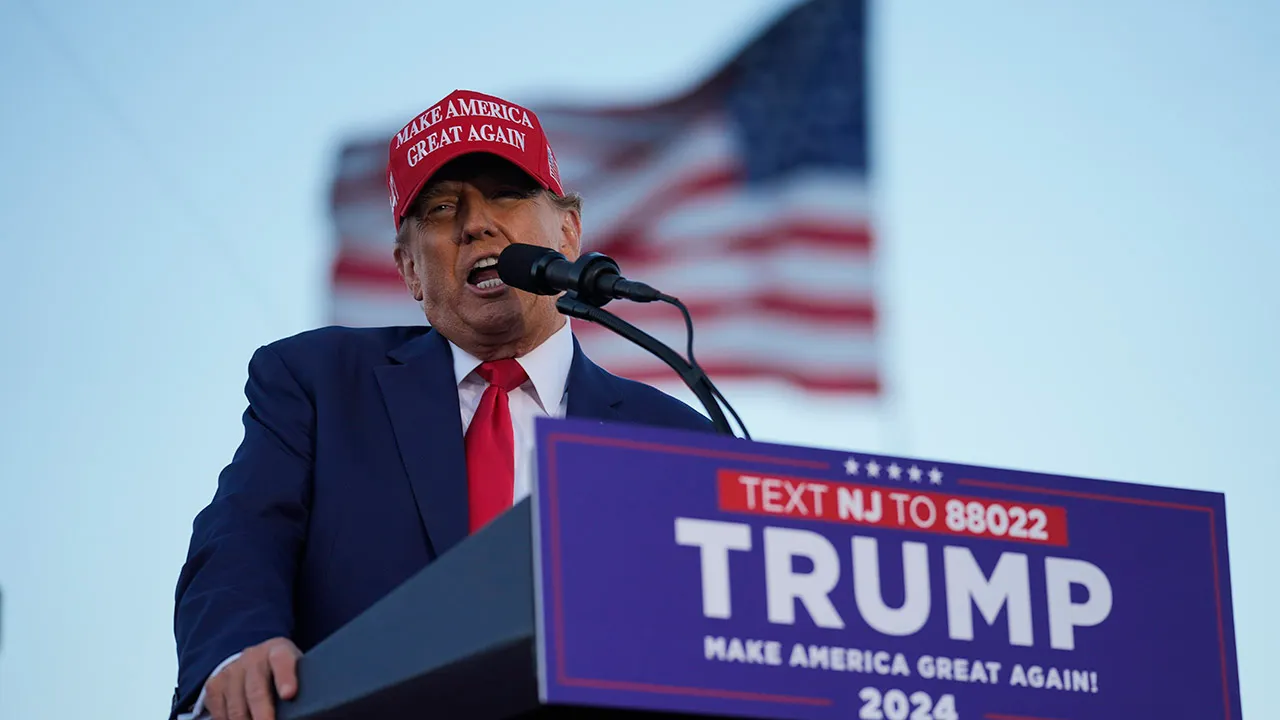
 Politics1 week ago
Politics1 week agoTrump campaign accelerates vetting of potential running mates
-

 Movie Reviews1 week ago
Movie Reviews1 week agoShort Film Review: Blue and White (2022) by Hiroyuki Nishiyama
-

 World1 week ago
World1 week agoWorld leaders, veterans mark D-Day’s 80th anniversary in France
-

 World1 week ago
World1 week agoFrance to provide Ukraine with its Mirage combat aircraft















